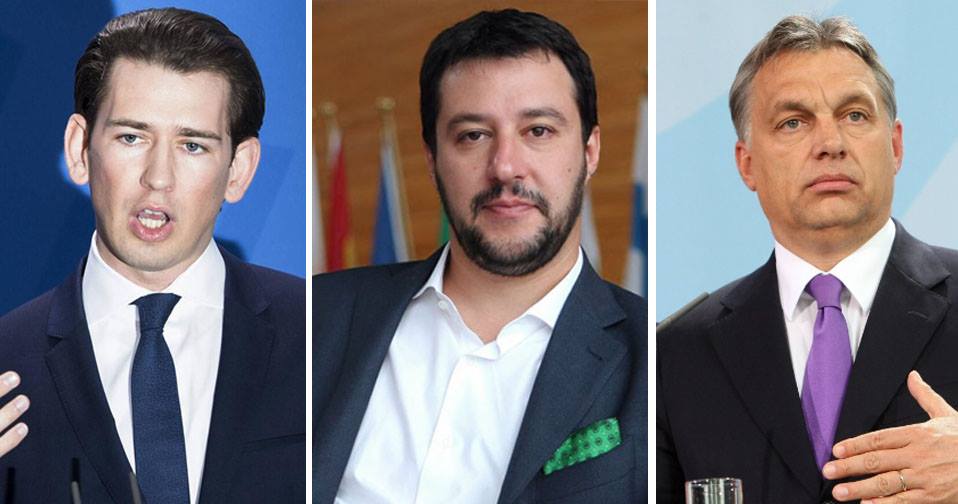League of Legends
How the populists are re-shaping the political equilibriums of the continent

From the field of Pontida—the small town in Italy where The League holds its annual meeting with the electoral base—Matteo Salvini, the young leader who transformed it from a regional independence movement to a sovereigntist national one, sets his view on the future of the party of Italy, and of Europe.
Having brought The League from the 3% to the current (virtual) 30% in the polls, which puts it as the biggest party in Italy, Salvini has hammered down his vision and stated that he is planning to stay in power for 30 more years and, more interestingly, that he plans on creating a “League of the Leagues”—meaning a pan-European movement of politically akin parties. You might tell me that that’s already the case with the current European political groups and I will agree to an extent. But I believe the current groups are simply too stationary in a fast-changing world. We have already seen the so-called populists gobble up the traditional left-wing electorate, with their promises of security both from criminality and from the job market volatility. But it’s not only the left who has haemorrhaged its electoral base to the right. It is also the case for classical liberal right-wing parties, who have proved unable to distance themselves from the idea of being a ruling elite that has lost contact with the people and only looks on preserving their interests.
Up until now, the counterargument was often based on the inability of these new populist leaders to think about anybody but their nation-state and thus, intrinsically, on the danger they posed for the European Union project. With this call to arms from Salvini, and with the rhetoric from Austrian Chancellor Sebastian Kurz, they have flipped this notion on its feet by pointing out the failures of solidarity and common causes of the current system. And by advocating another idea of Europe, they have avoided being automatically labelled Eurosceptic—a concept that does not resonate with the general public that is still overwhelmingly in favour of the Union. The transformation from Eurosceptic to Eurocritics is, in my opinion, the cornerstone of the political transformation of the identitarian and sovereign movements across the continent and they are free now to re-shape the political discourse to their needs and sailing towards a cultural hegemony that, in many western countries, has completely taken over the political debate.
It has been analyzed to death, the losers of globalization, the Trump election, Brexit, and so on and so-forth, but it was never as clear as in this moment, that these parties and their rhetoric are here to stay and it is not sufficient to discredit them to make them go away. The current political establishment has lost yet another occasion to show unity at the last Council Summit, which centred on migration and which proved to be ineffective as all the others before it. Following the stalemate, we saw the German government crisis with CSU leader and Interior Minister Horst Seehofer trying to stop the diaspora vote in the next regional elections in Bavaria, which triggered a response from Angela Merkel to close the border, and initiated a domino effect on the member states that are essentially legitimizing Austria, Italy and all the others to act in their own interests, without trying to achieve a common European solution.
This whole process will culminate in less than one year with the European elections, which will be more than ever at the center of the political hurricane we are living in, and will shape European and world politics for, at the very least, the next five years after them or maybe, as Salvini said, for the next thirty. Now, of course they could, and maybe will, fail miserably with their promises. But the fact is that the public “anger” remains and it is possible somebody more “extreme” will come to address it. I personally think monopolies, even cultural ones, are not beneficial, whichever side they are from. Yet, if we want to use the market metaphor, you have to convince the consumer that your product is better by showing them its advantages. And you can’t just expose the flaws of your competitor’s, but, most importantly, you must have a product to begin with.
